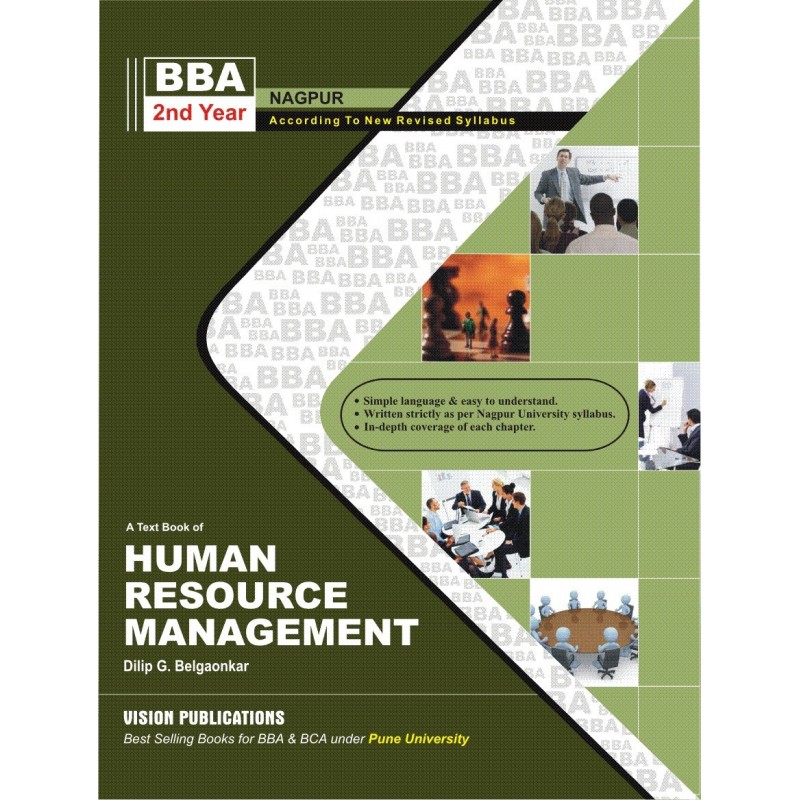Email: tovisionpune@gmail.com



According to New Revised Syllabus w.e.f. 2010 Nagpur, Maharashtra (INDIA)
Text Book of Human Resource Management
SY BBA Nagpur
Author : Dilip G. Belgaonkar
Book ID : 1278
1. Introduction
1.1 Concept
1.2 Scope of HRM
1.3 Importance of HRM
1.4 Duties and Responsibilities of HR manager
1.5 Importance of HRM to all manager
2. Human resource Planning/Acquisition
2.1 Recruitment
2.2 Selection
3. Training and Development
3.1 INTRODUCTION
3.2 Types of Training
3.3 Evaluation and Effectiveness of Training (Transfers, Promotion/Demotions)
4. Employee Remuneration/ Compensation
4.1 Introduction
4.2 Nature and Purpose of Wage Determination Process
4.3 Compensation
4.4 Incentive Plans and Profit Sharing
4.5 Exit Policy
5. Legal Aspect
5.1 Introduction to Provident Fund Act
5.2 Employees’ State Insurance Corporation Act
5.3 Minimum Wages Act
6. The Industrial Dispute Act, 1946
6.1 INTRODUCTION
6.2 Authorities under the act
Or
Machinery for settlement of industrial disputes conciliation
6.3 Strike and lockout, Lay-off and retrenchment
6.4 Grievance redressal machinery
7. Collective Decision Making
7.1 Introduction
7.3 Group Think
7.4 Advantages and Disadvantages of Group Decision Making
8. Trade Unions
8.1 Definition
8.2 Registration of Trade Union
8.3 Rights and Liabilities of Trade Unions
8.4 Basic Understanding of Recognition-Membership-Amalgamation-Dissolution of Trade Unions
8.5 Objectives and Functions of Trade Unions
8.6 Illegal strikes and lock-outs
8.7 Unfair labour practices
8.8 Powers of courts
8.9 Power of labour court and industrial court to try offences under this act
8.10 Penalties
8.11 Miscellaneous
8.12 SUMMARY
9. Collective Bargaining
9.1 Introduction
9.2 Features of collective Bargaining
9.3 Types of collective bargaining
9.4 Process of collective Bargaining
9.5 Collective Bargaining contracts
9.6 Pre-requisites for collective bargaining
9.7 Importance of collective Bargaining
9.8 Functions of collective bargaining
9.9 Factors responsible for successful “collective Bargaining” in India
10. Job Evaluation and Job Design
10.1 Introduction to Job Evaluation
10.2 Job Design
11. Merit Rating
11.1 Introduction
11.2 Concept of Scientific Merit Rating
11.3 Methods
11.4 Difference between Job Evaluation and Merit Rating